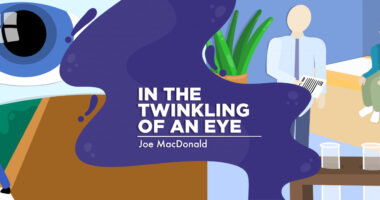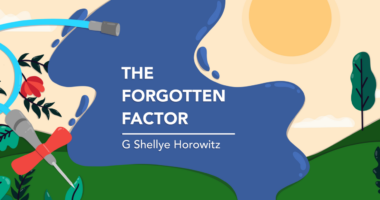Hemophilia and mental health
Hemophilia, with its potential for spontaneous bleeding episodes and the need for regular medical interventions, can have a significant effect on the mental well-being of people living with this bleeding disorder.
Hemophilia is characterized by bleeding episodes, often into the joints and muscles in severe forms of the disease; joint pain; easy bruising; and sometimes limited range of motion.
Dealing with hemophilia complications such as hemophilia-associated pain from joint disease, along with the unpredictability of bleeding episodes and how it can affect daily life, leave people with hemophilia at an increased risk for mental health issues, such as depression and anxiety.
Parents and caregivers of children who have hemophilia also may develop anxiety and depression.
But many people with hemophilia develop resilience and effective coping strategies for maintaining their mental health. Lifestyle changes such as exercising safely and maintaining healthy sleep habits can have positive effects on how you feel.
Always remember that you’re not alone. Resources and support are available to help you navigate mental health challenges. If you need help, reach out to healthcare providers, mental health professionals, and hemophilia support groups.
If you are worried about your or someone else’s mental health, it’s important that you know what to do and how to help yourself.
Accepting the diagnosis
Receiving a diagnosis of hemophilia type A, B or C for yourself or your child may leave you feeling overwhelmed.
You may experience many different emotions, such as confusion, anger, fear, and grief. You may even go through the five stages of grief: denial, anger, bargaining, depression, and acceptance. It’s important to recognize that grief is a complex and individual process that may not neatly fit into distinct stages.
Give yourself permission to feel these emotions and express them in healthy ways. Talking to family, friends, or a mental health professional can be beneficial.
Being diagnosed with hemophilia doesn’t mean you need to limit your activities and quality of life, according to Jackie Bottacari, a licensed clinical social worker. She provides mental healthcare at the Yale Center for Bleeding and Clotting Disorders at the Yale Hemophilia Treatment Center in New Haven, Connecticut.
Instead, it means acknowledging the disease as part of your life and finding ways to manage and thrive.
“We’re here to help you educate yourself about hemophilia, and help you make informed decisions,” she says.
Educating yourself about hemophilia, its causes, treatments, and complications, can help demystify the disease and empower you to make informed decisions about living with it.
Anxiety
It’s estimated that 16% of people living with hemophilia will experience anxiety at some point in their life. This can interfere with adhering to treatment.
Anxiety symptoms can include:
- excessive worrying
- restlessness
- difficulty concentrating
- muscle tension and headaches
- inability to sleep.
Bottacari notes that not everyone with hemophilia has the same stresses and anxieties. Some of these might include dealing with hemophilia symptoms and having to go to a hospital, which can make some people feel panicky, she says.
“It’s also a fear of needles and fear of blood draws,” she says about young children who have hemophilia. She notes teenagers with hemophilia may feel anxiety about being different from their peers, and adults may feel pressure to keep up with work and family life.
Other causes of anxiety may include having overprotective parents, worrying about the future, having restrictions on activities, disease treatments, and the economic burden of treatment costs.
“It’s really important to remember that your hemophilia doesn’t mean that you are restricted and you’ll be in a bubble your whole life,” says Bottacari. She points out that there are coping strategies that can help with anxiety, including therapy, exercise, and stress management.
Depression
Depression is a mood disorder characterized by persistent feelings of sadness that last longer than two weeks and a lack of interest or pleasure in daily activities.
The chronic nature of hemophilia, the unpredictability of bleeding episodes, and the challenges of managing hemophilia can contribute to the development or worsening of depression.
More than 40% of people with hemophilia may have some symptoms of depression. This compares to a rate of almost 23% among the general U.S. population. In terms of diagnosis, estimates indicate about 14.5% of people with hemophilia receive a formal diagnosis of depression, compared to 5.6% in the general U.S. population.
Depression can cause emotional distress, social withdrawal, and the inability to work or take care of yourself.
“People with hemophilia tend to isolate themselves,” says Bottacari, who also works with the Bleeding Disorders Substance Use and Mental Health Access Coalition, which advocates for better access to in-patient treatment for people with hemophilia. “We know that the more you isolate yourself, the harder it’s going to be to accept treatment and really work on those depressive symptoms.”
Treatment for depression can include counseling and therapy, hemophilia support groups, lifestyle changes, mindfulness and relaxation techniques, and, in some cases, medications.
Daily coping strategies for easing anxiety and depression
Living with hemophilia means adopting daily coping strategies to manage the physical and emotional aspects of the condition.
Suggested coping strategies to help with mental health include:
- Maintain a healthy work-life balance, or school-life balance, including communicating about accommodations for yourself or your child who has hemophilia.
- Talk with family and friends about your feelings and worries.
- Try relaxation techniques such as yoga, gentle stretches, and meditation.
- Stick to your treatment plan, including regular prophylaxis (treatment for the prevention of bleeding episodes).
Counseling and therapy
When seeking counseling and therapy for mental health issues, ask your hemophilia healthcare team for recommendations to mental health professionals, such as psychologists, psychiatrists, and licensed therapists, says Bottacari.
In her practice, Bottacari uses cognitive-behavioral therapy, which helps people identify and try to change their negative thought patterns and behaviors.
“We help our patients work around the automatic thoughts that pop into their head,” says Bottacari. “For example, a person might say ‘I’m never going to stop bleeding’ when they have an active nosebleed.”
She works with her patients on how to improve that automatic thought, such as thinking about how long it usually takes for a nosebleed to stop, or remembering they can take medication to stop a nosebleed.
“It’s getting that individual to see that their first automatic thought, which is causing anxiety and stress, isn’t true,” she says. “Reframing their thinking helps reduce the stress and anxiety they’re feeling.”
Bottacari says mothers of children with hemophilia also can seek counseling if they are struggling with mental health issues.
“As hemophilia is (typically) passed to the child down through mothers, they often struggle with feelings of guilt,” she says. Fathers also may experience stress and guilt.
“We do a lot of reframing work with parents,” she says, adding that parents need to keep in mind that their child inheriting hemophilia is not something they could have controlled. She says some parents may avoid talking about the disease or pretend it doesn’t exist, and that neither of those approaches is healthy.
Mental health counseling for a person with hemophilia should address the emotional and psychological challenges associated with living with a chronic condition. Some counseling techniques to consider may include:
- mindfulness-based stress reduction, which incorporates meditation and stress reduction techniques
- supportive counseling, which offers a safe space to express emotions, concerns, and fears related to hemophilia
- problem-solving therapy, which can help develop the skills to address the challenges of hemophilia, such as managing daily activities and making treatment decisions
- coping skills training, which offers practical techniques such as stress management, relaxation techniques, and emotional regulation, to foster resilience and adaptability.
Counseling can take the form of family therapy, group therapy, or self-compassion techniques.
Support groups
Support groups can be invaluable resources for information, social connection, and emotional support for you and your loved ones.
Start by asking about support groups at your local hemophilia treatment center. Social workers and other mental health professionals at a center may offer support groups or be able to offer suggestions. Your personal healthcare provider also may be able to refer you to an in-person or online support group.
In the U.S., contact the National Bleeding Disorders Foundation or the Hemophilia Federation of America to find other people who have been affected by hemophilia. There are local chapters and associations in many areas of the country.
In Canada, contact the Canadian Hemophilia Society. Internationally, contact the World Federation of Hemophilia for connections to support groups.
The forums on the Hemophilia News Today website include groups talking about treatments, inhibitors, inheritance, and hemophilia types. You can also check the site’s Facebook page.
Lifestyle changes
Lifestyle changes can support your overall well-being, both mentally and physically, by incorporating safe exercise, managing your stress, eating a nutritious diet — all of which can help you stick with your treatment plan.
Social anxiety can cause people with hemophilia to isolate themselves, says Bottacari, so it’s essential to make the attempt to connect with people.
“It’s a very difficult thing to engage with other people,” she says. “But try, little by little, to engage with one other person, then maybe two people, and gradually work your way up to a group of people.”
Other lifestyle changes can include:
- daily physical activity that is low-impact
- meditation and yoga
- reducing alcohol consumption
- smoking cessation
- a healthy diet
- sleeping well.
Deciding which coping strategies to use to help your mental health is a matter of personal preference, trying different approaches, and perseverance.
What to do in a mental health emergency
Experiencing a mental health crisis when you have hemophilia can be especially challenging. It’s important to have a plan in place, so you know what to do and whom to contact.
The most common sign of a mental health crisis is “a clear and abrupt change in behavior,” according to the American Psychological Association.
Warning signs of a mental health crisis include:
- intense changes in mood
- inability to function in daily tasks or take care of hygiene
- feeling increasingly agitated, angry, or violent
- self-medication or self-harm
- withdrawal from others
- hallucinations or delusions
- paranoia
- suicidal thoughts.
If you think you’re having a mental health crisis and you have a mental health provider, Bottacari suggests calling them — they may have an after-hours or emergency line.
Other crisis intervention options include going to a walk-in psychiatric urgent care or a hospital emergency department, or calling 911.
If you or someone else is in immediate danger, experiencing severe emotional distress, or having thoughts of self-harm or suicide, call 911 in the U.S. or Canada, or your local emergency number.
When calling 911, it is helpful to say that a mental health crisis is unfolding, so the appropriate service is connected, such as a crisis intervention team.
If you are having suicidal thoughts, reach out for help. Speak or text with a counselor at a crisis line:
- in the U.S., call the 988 Suicide and Crisis Lifeline
- military veterans can reach out to the Veterans Crisis Line by dialing 988 and pressing 1
- in Canada, call 988
- text the Crisis Text Line at 741741 in the U.S. and Canada
- internationally, find country-specific crisis text lines here
- internationally, find country-specific crisis hotlines at Suicide Stop or Befrienders Worldwide.
Hemophilia News Today is strictly a news and information website about the disease. It does not provide medical advice, diagnosis or treatment. This content is not intended to be a substitute for professional medical advice, diagnosis, or treatment. Always seek the advice of your physician or other qualified health provider with any questions you may have regarding a medical condition. Never disregard professional medical advice or delay in seeking it because of something you have read on this website.
Recent Posts
- The extra cargo of college life that’s putting my son in the driver’s seat
- Altuviiio safe, effective in patients with severe hemophilia A: Study
- For hemophilia patients, January brings out-of-pocket maximum woes
- The challenges of treatment when you’re a team’s first hemophilia case
- Using extended half-life products cuts bleeds in hemophilia B kids
Related articles

 Fact-checked by
Fact-checked by 




